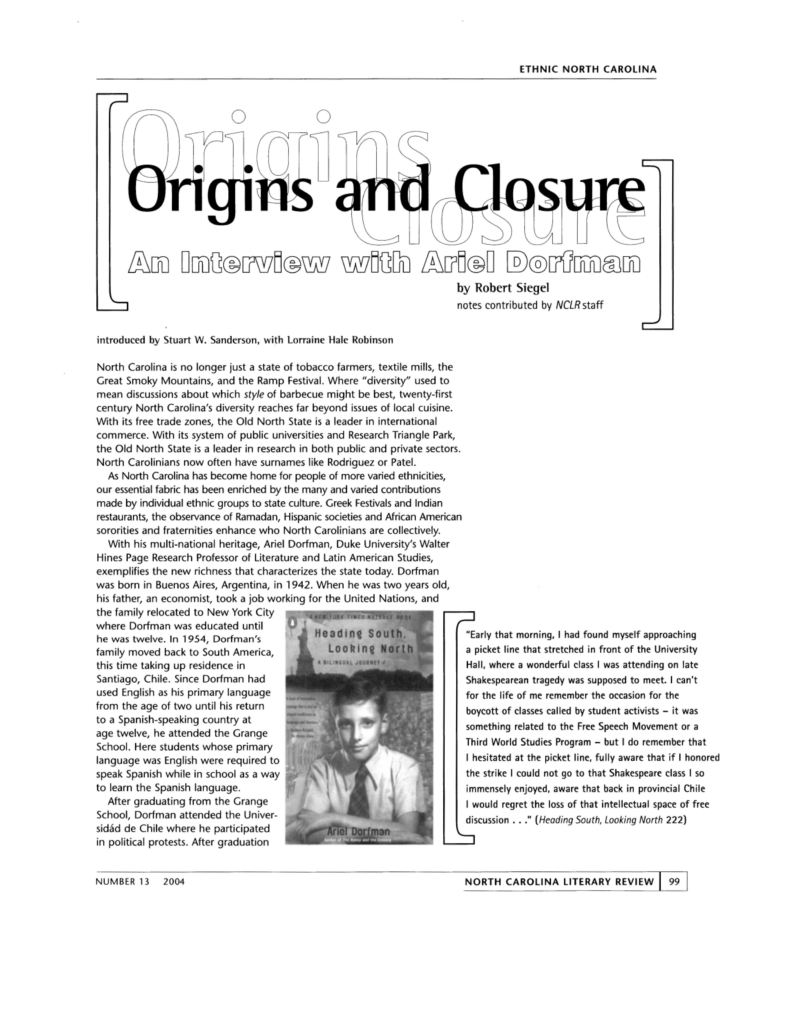Friday from the Archives: “Origins and Closure: An Interview with Ariel Dorfman” by Robert Siegel, introduced by Stuart W. Sanderson, with Lorraine Hale Robinson, from NCLR Issue 13 (2004)
We would love to have more writings by and about Hispanic and Latinx North Carolina authors. Ten years ago, in 2013, Joan Conwell posed the question “Where are they?” in our Online issue that year and, unfortunately, we still don’t have a great answer to that query.
While we wait for your submissions, we do have this interview with Duke literature professor emeritus, author, and activist Ariel Dorfman, from our 2004 issue.
“With his multi-national heritage, Ariel Dorfman, Duke University’s Walter Hines Page Research Professor of Literature and Latin American Studies, exemplifies the new richness that characterizes the state today.” Sanderson provides a brief historical overview of Dorfman’s journey from childhood in both South American and the United States, then back and forth, until finally having to vacate Chile under threat of death from Pinochet. “Dorfman has since moved around the globe – to teach in Paris and Amsterdam; to Washington, DC, for a fellowship at the Woodrow Wilson Center for International Scholars; and finally, to Durham, North Carolina, where he has taught during the fall semester each year since 1984 at Duke University.”
Most of the interview revolves around Dorfman’s then-new work Desert Memories: Journeys Through the Chilean North by National Geographic Books. Siegel points out how Dorfman writes about both macro and micro level stories (beginning of humanity in South America; his best friend’s execution) and how the book feels similar to his other work, both fictional and memoir. Dorfman responds, “This book about the desert memories is about going to a desert where everything had already happened, and I’m trying to figure out what happened. What are the vestiges? What are the traces left by that past? I’m very interested in discovering that. It’s very much related to my aesthetic, which is that you do not face things frontally.”
Dorfman doesn’t get deep into the writing practice in this interview, but does say, “…you don’t want to bore yourself because if you bore yourself the audience is sure to be very tired – the audience or the reader. You want to come at things in a sense of revealing something that is obvious and yet was not obvious before you wrote it.” With another new novel out this month, Dorfman doesn’t seem to be bored. Thankfully.
Read the whole article: add the 2004 issue to your collection.
